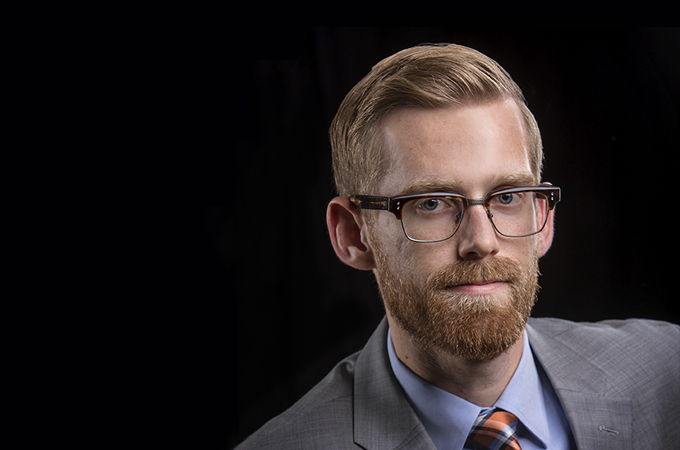For as long as Jeff Pettis ’21 can remember, he has felt the pull to be an advocate. “I just didn’t know what that was going to look like,” he recalls.
As an undergraduate student, he studied international relations and entertained the idea of becoming an immigration lawyer. Eventually, he ended up working to raise scholarship funds for underserved students at University of California, Riverside. When he felt the need to make a change, he seized the opportunity to enroll in the University of Redlands School of Education Clinical Mental Health Counseling program.
“I was always the friend that people confided in,” he says. “I wanted to go back to school in order to make a more direct impact on people’s lives.”
Learning how to make an impact
Having grown up in the Inland Empire, Pettis was familiar with the U of R, liked that he would be able to stay in close proximity to his family while in graduate school, and valued the school’s educational justice emphasis. Since he hadn’t studied psychology as an undergraduate, he was also attracted to the fact that the program doesn’t require students to complete prerequisite courses—he could jump right in.
As a graduate student at the U of R, Pettis has experienced growth in many facets of his life. He has been able to explore different specialties within the counseling profession with the help of various courses—human growth and development, trauma treatment and crisis, and other classes that have helped him to develop skills to treat future clients.
At times, the program has even been therapeutic for him. “I’ve been in therapy throughout my life but being in the other chair [as a counselor] has taught me about a lot of the things below the surface. I’ve had to address aspects of my personal life in order to be a more effective counselor. The most important thing I’ve learned is the ability to build skills and make lifestyle choices that regulate my anxiety, which has made a huge impact on how my clients see me,” he says.
Pettis and his classmates also faced an unprecedented event—the COVID-19 pandemic. A year into his program, courses transitioned to a virtual format, prompting him to adapt to online learning while also staying organized and combating video conference fatigue.
Personal and professional growth
According to Pettis, the highlight of his program has been his clinical internship. Counseling students are required to spend a year working in the field, and Pettis was drawn to California Behavioral Health, a residential addiction treatment center in Cathedral City, California. Working anywhere from 16 to 24 hours a week, Pettis facilitates group and individual therapy sessions with residents who are recovering from drug addiction and alcoholism.
Pettis says the experience has challenged him personally and professionally. While being exposed to helping those with a variety of diagnoses and mental illnesses, he has been able to have important conversations about vulnerability with patients in group sessions while also teaching individuals how to manage triggers and cravings, enhance their interpersonal relationships, and regulate their emotions with the help of dialectical behavioral and cognitive-behavioral therapies.
Because the center was deemed an essential business, Pettis was able to complete his internship in person during the pandemic. But it wasn’t without stress—when a resident tested positive for the COVID-19 virus, personnel had to follow certain protocols to contain its spread within the facility, and he often worried about contracting the virus and infecting his family members.
“This kind of work takes a very specific personality,” says Pettis, who notes that he surprised himself by wanting to work in an addiction treatment center. “There is definitely a high burnout rate. I’ve had to stay on top of my self-care—making sure that I go out and ride my bike or meditate.”
A mission to help others
While he doesn’t plan on working in a treatment facility long-term, Pettis does plan on using the same skills—in a position he managed to secure ahead of graduating—as a counselor at a marriage and family therapy private practice serving clients in the Coachella Valley. In the future, he plans to secure certifications in trauma treatment, use neuro feedback to treat post-traumatic stress disorder, and develop group therapy for young athletes struggling with performance anxiety.
Through it all, a lifelong calling lies at the center of Pettis’s work. “Growing up, I had a lot of experiences that impacted me socially and emotionally,” he says. “This program has pulled me apart and put me back together in a new way. Counseling feels like my mission in life—the greatest thing I can do is help someone so that they don’t have as much of a struggle.”
Learn more about the School of Education.






